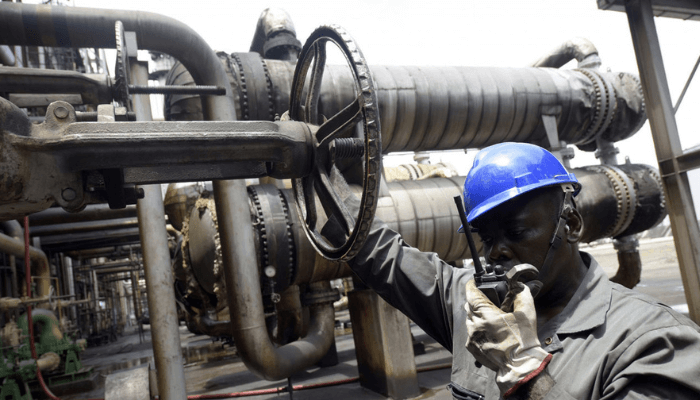Nigeria’s petrol imports plunged to a record low in June as the Dangote Petroleum Refinery ramped up output, signaling a potential shift in the country’s long-standing dependence on imported fuel.
According to a new report from Argus, citing Kpler shipping data, increased gasoline production from the 650,000 barrels-per-day Dangote facility sharply curtailed demand from traditional suppliers in the European Union, the United Kingdom, and Norway.
Kpler data showed that petrol shipments from Europe to Nigeria dropped by 56% month-on-month to 231,000 metric tonnes in June — the lowest volume since Kpler began tracking. Including additional shipments of 28,000 tonnes from offshore Lome and 12,000 tonnes from Houston, total imports stood at 271,000 metric tonnes (approximately 363.4 million litres).
The downturn in Nigeria’s imports contributed to a regional decline, with total West African imports of European gasoline falling to a four-month low of 926,000 metric tonnes — down from 1.315 million tonnes in May and 20% lower year-on-year.
Nigeria, historically West Africa’s largest gasoline importer, was overtaken by Togo last month in total EU-sourced fuel imports.
Meanwhile, the Dangote Refinery exported a record 252,000 metric tonnes of petrol in June, with shipments bound for Oman, Malaysia, and Côte d’Ivoire. Cargoes included 90,000 tonnes to Sohar (Oman), 89,000 tonnes to Pasir Gudang (Malaysia), and 35,000 tonnes to Abidjan, with an additional 39,000 tonnes awaiting discharge.
With additional plant capacity and ongoing ramp-up, the refinery is edging Nigeria closer to net-exporter status.
Dangote Group Executive Director Edwin Devakumar said the plant’s naphtha hydrotreating unit can boost output further and revealed the company has begun sourcing naphtha to support gasoline production.
Devakumar added that the refinery aims to rely exclusively on Nigerian crude by the end of 2025 — a shift that could replace hundreds of thousands of barrels of imported crude per day. In June, roughly half of the plant’s crude feedstock was sourced from local producers, a figure expected to rise as export obligations expire.
The developments mark a significant milestone for Nigeria’s downstream oil sector, potentially reshaping its energy trade balance and strengthening fuel security.
He said, “We expect some of the long-term contracts will expire. Personally, and as a company, we expect that before the end of the year, we can transition 100 per cent to local crude.”
Since the Dangote facility opened, the company has bought crude from Brazil, Angola, Ghana, and Equatorial Guinea, according to Edwin. Improved relations between the refinery, local oil traders, and the government will result in a steady supply of Nigerian crude, he stated.
That goal still hinges on a substantial ramp-up in domestic crude supply in the months ahead. In June, 53% of the refinery’s crude feedstock came from Nigerian producers, while the remaining 47% was sourced from the United States, according to Bloomberg.
The facility is currently processing 550,000 barrels of crude per day, Executive Director Edwin Devakumar said. Dangote is slated to lift five cargoes from the Nigerian National Petroleum Company Limited in both July and August, based on official cargo allocation schedules.











